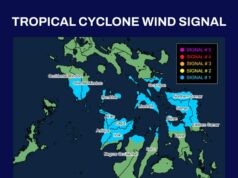Gov’t to intensify crackdown against counterfeit goods
INTER-AGENCY group National Committee on Intellectual Property (NCIPR) on Friday said that it will be intensifying the crackdown on counterfeit goods after conducting a surprise inspection campaign on the same day.
In a statement, Intellectual Property of the Philippines (IPOPHIL) Director General Josephine R. Santiago said the selling of fake goods, which is considered as a breach of intellectual property, is not the only problem faced by the Department of Trade and Industry (DTI) and IPOPHIL.
“We expect that they [sellers of fake goods] should pay taxes so that these should also benefit the government. We need to protect these is because this is an effort made by someone,” she said. “If it is a brand that someone spent on, invested on, we should respect the mindset of that entrepreneur. We should consider that someone worked hard for it.”
Data from IPOPHIL showed that seized counterfeit goods reached P8.2 billion in 2017, higher by 26.2% from P6.52 billion worth of fake goods seized in 2016.
The highest amount ever reached was worth P13.33 billion in 2014.
The agency is also working on amendments for the 20-year-old Intellectual Property Code of the Philippines or Republic Act No. 8293.
“We are in our final stages in refining the provisions but we have included a lot of changes especially in terms of penalties.We are increasing the penalty as it is. For counterfeits involving public health and public safety, we will also increase the penalty even more,” she added. “Right now, the first offense is P50,000 to P150,000, [so maybe] we could double it. We’re still finalizing the amount.”
The amendments will also include provisions for counterfeit clothes and shoes as well as a “notice and take down” provision for bogus online marketplaces.
“They’re (fake goods sellers) not even hiding anymore. For online business, there’s so many business for that but if you find out that what you bought is fake, there’s nothing you can do because it’s online-based,” Mr. Pascua said.
IPOPHIL is also seeking to institutionalize NCIPR into the code, having been around for 10 years already.
Ms. Santiago also said that they are working with the DTI and the local government of San Juan City to address the issue of fake goods sellers especially in Greenhills.
“We want a long-term program for them by giving them legitimate livelihood and DTI is in a position to give them that [through their Go Negosyo centers],” she said.
San Juan will be the testing ground for NCIPR to divert sellers from peddling fake goods to legal merchandise through DTI’s Go Negosyo centers.
Trade Undersecretary for Consumer Protection Group Ruth B. Castelo said that the DTI is ready to provide an alternative to prevent further protect consumers.
For his part, Intellectual Property Office of the Philippines Deputy Director General Teodoro C. Pascua said that NCIPR will also be educating small-time vendors on intellectual property.
“Unless you give them a job, it will not stop. It’s a cultural and mindset [problem that we have to change]. We’re going to slowly guide them. If we can help Marawi, why not them?”
Next month, the National Book Development Board, one of the 12 agencies in the group, will also be conducting its own monitoring. — Anna G. A. Mogato



